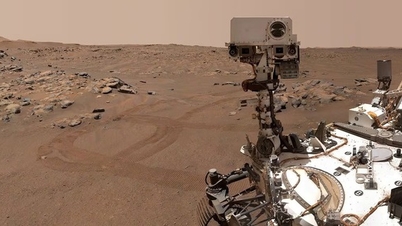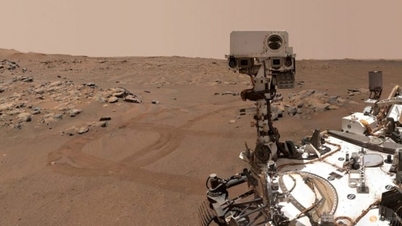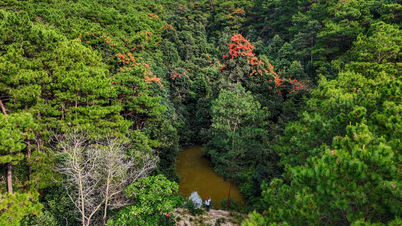The Perseverance Mars rover has found a rock with features that suggest it may have been home to bacteria billions of years ago, but more research is needed.
NASA's Perseverance Mars rover has discovered a spotted arrowhead-shaped rock with features that could indicate bacterial life billions of years ago on Mars.
During its exploration of Neretva Vallis, an ancient river valley on Mars, on July 21, the Perseverance Mars rover encountered the rock, named Cheyava Falls after a waterfall in the Grand Canyon (Grand Canyon in Arizona, USA).
The team of scientists analyzed the rock using X-rays and lasers, and found the presence of white calcium sulfate veins, a red center zone, and small, opaque white spots on the rock.
"On Earth, such features in rocks are often associated with the fossil record of bacteria living below the surface," said David Flannery, an astrobiologist at the University of Queensland (Australia) and a member of the scientific team.
While the features observed in the rock suggest the possibility of microbial life on Mars during warmer and wetter times, alternative explanations such as high temperatures making the environment uninhabitable cannot be ruled out.
To confirm whether the rock does indeed contain evidence of bacterial life, further testing on Earth is needed.
However, NASA's mission to return the samples to Earth is facing many challenges, including budget overruns and significant delays, pushing the expected completion date into the 2040s.
NASA is actively exploring alternative methods to speed up the return of Mars samples to Earth sooner and at lower cost.
Source: https://nhandan.vn/xe-tu-hanh-cua-nasa-phat-hien-dau-vet-cua-su-song-tren-sao-hoa-post821450.html




![[Photo] President Luong Cuong and United Nations Secretary-General Antonio Guterres chaired the signing ceremony of the Hanoi Convention.](https://vphoto.vietnam.vn/thumb/1200x675/vietnam/resource/IMAGE/2025/10/25/1761370409249_ndo_br_1-1794-jpg.webp)

























![[Photo] President Luong Cuong and United Nations Secretary-General Antonio Guterres chaired the signing ceremony of the Hanoi Convention.](https://vphoto.vietnam.vn/thumb/402x226/vietnam/resource/IMAGE/2025/10/25/1761370409249_ndo_br_1-1794-jpg.webp)















































































Comment (0)